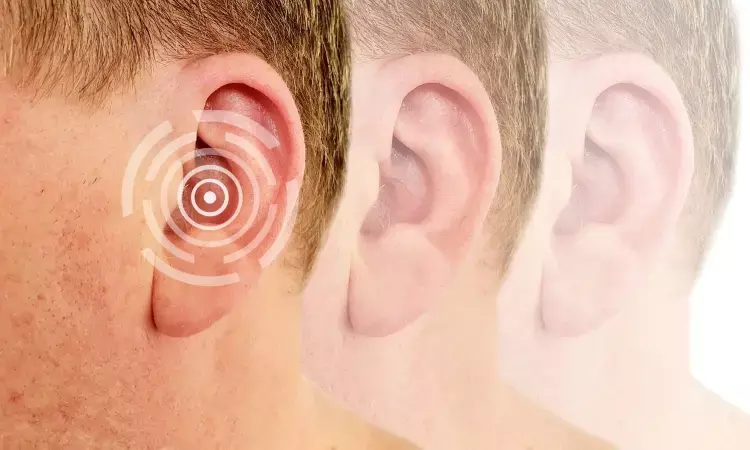- Home
- Medical news & Guidelines
- Anesthesiology
- Cardiology and CTVS
- Critical Care
- Dentistry
- Dermatology
- Diabetes and Endocrinology
- ENT
- Gastroenterology
- Medicine
- Nephrology
- Neurology
- Obstretics-Gynaecology
- Oncology
- Ophthalmology
- Orthopaedics
- Pediatrics-Neonatology
- Psychiatry
- Pulmonology
- Radiology
- Surgery
- Urology
- Laboratory Medicine
- Diet
- Nursing
- Paramedical
- Physiotherapy
- Health news
- Fact Check
- Bone Health Fact Check
- Brain Health Fact Check
- Cancer Related Fact Check
- Child Care Fact Check
- Dental and oral health fact check
- Diabetes and metabolic health fact check
- Diet and Nutrition Fact Check
- Eye and ENT Care Fact Check
- Fitness fact check
- Gut health fact check
- Heart health fact check
- Kidney health fact check
- Medical education fact check
- Men's health fact check
- Respiratory fact check
- Skin and hair care fact check
- Vaccine and Immunization fact check
- Women's health fact check
- AYUSH
- State News
- Andaman and Nicobar Islands
- Andhra Pradesh
- Arunachal Pradesh
- Assam
- Bihar
- Chandigarh
- Chattisgarh
- Dadra and Nagar Haveli
- Daman and Diu
- Delhi
- Goa
- Gujarat
- Haryana
- Himachal Pradesh
- Jammu & Kashmir
- Jharkhand
- Karnataka
- Kerala
- Ladakh
- Lakshadweep
- Madhya Pradesh
- Maharashtra
- Manipur
- Meghalaya
- Mizoram
- Nagaland
- Odisha
- Puducherry
- Punjab
- Rajasthan
- Sikkim
- Tamil Nadu
- Telangana
- Tripura
- Uttar Pradesh
- Uttrakhand
- West Bengal
- Medical Education
- Industry
Obstructive Sleep Apnea-Hypopnea Syndrome closely linked to high-frequency hearing loss

In a recent study by Chaoyu Wang and team, the Obstructive Sleep Apnea-Hypopnea Syndrome (OSAHS) group had a greater rate of hearing loss, primarily high-frequency hearing loss, as compared to the control group. The findings of this study were published in Frontiers in Neurology.
According to the World Health Organization, there are 1.5 billion people who suffer from hearing loss globally. Hearing loss may be an avoidable risk factor in the form of OSA. In other words, OSA therapy may lessen the likelihood of hearing loss. Although the underlying cause of the link between OSA and hearing loss is unknown, it is believed that long-term hypoxia caused damage to the cochlear hair cells. In order to investigate the connection between OSAHS and hearing loss through meta-analysis, this study was carried out.
From their inception until July 1st, 2022, databases such as PubMed, Cochrane Library, Embase, Web of Science, and others are searched. Two researchers independently screen, extract data from, and evaluate the quality of the included literature on the connection between OSAHS and hearing loss. The meta-analysis is carried out with RevMan 5.4.1. For meta-analysis, a random-effects model or fixed-effects model is employed depending on the heterogeneity between studies.
The key findings of this study were:
There are a total of 10 studies with 7,867 subjects-1,832 in the OSAHS group and 6,035 in the control group—across 10 articles.
The meta-analysis demonstrates that there are more OSAHS patients with hearing impairment than in the control group, and that their average hearing threshold is also greater.
The meta-analysis reveals that the OSAHS group has a higher threshold of 0.25 and response amplitudes at frequencies 2, 4, and 8 kHz are all greater than those of the control group after stratifying the included studies according to hearing frequency.
In conclusion, hearing loss is primarily present at higher frequencies and is closely correlated with OSAHS, which is also a risk factor for hearing loss.
Reference:
Wang, C., Xu, F., Chen, M., Chen, X., Li, C., Sun, X., Zhang, Y., Liao, H., Wu, Q., Chen, H., Li, S., Zhu, J., Lin, J., Ou, X., Zou, Z., Li, Y., Chen, R., Zheng, Z., & Wang, Y. (2022). Association of Obstructive Sleep Apnea-Hypopnea Syndrome with hearing loss: A systematic review and meta-analysis. In Frontiers in Neurology (Vol. 13). Frontiers Media SA. https://doi.org/10.3389/fneur.2022.1017982
Neuroscience Masters graduate
Jacinthlyn Sylvia, a Neuroscience Master's graduate from Chennai has worked extensively in deciphering the neurobiology of cognition and motor control in aging. She also has spread-out exposure to Neurosurgery from her Bachelor’s. She is currently involved in active Neuro-Oncology research. She is an upcoming neuroscientist with a fiery passion for writing. Her news cover at Medical Dialogues feature recent discoveries and updates from the healthcare and biomedical research fields. She can be reached at editorial@medicaldialogues.in
Dr Kamal Kant Kohli-MBBS, DTCD- a chest specialist with more than 30 years of practice and a flair for writing clinical articles, Dr Kamal Kant Kohli joined Medical Dialogues as a Chief Editor of Medical News. Besides writing articles, as an editor, he proofreads and verifies all the medical content published on Medical Dialogues including those coming from journals, studies,medical conferences,guidelines etc. Email: drkohli@medicaldialogues.in. Contact no. 011-43720751


